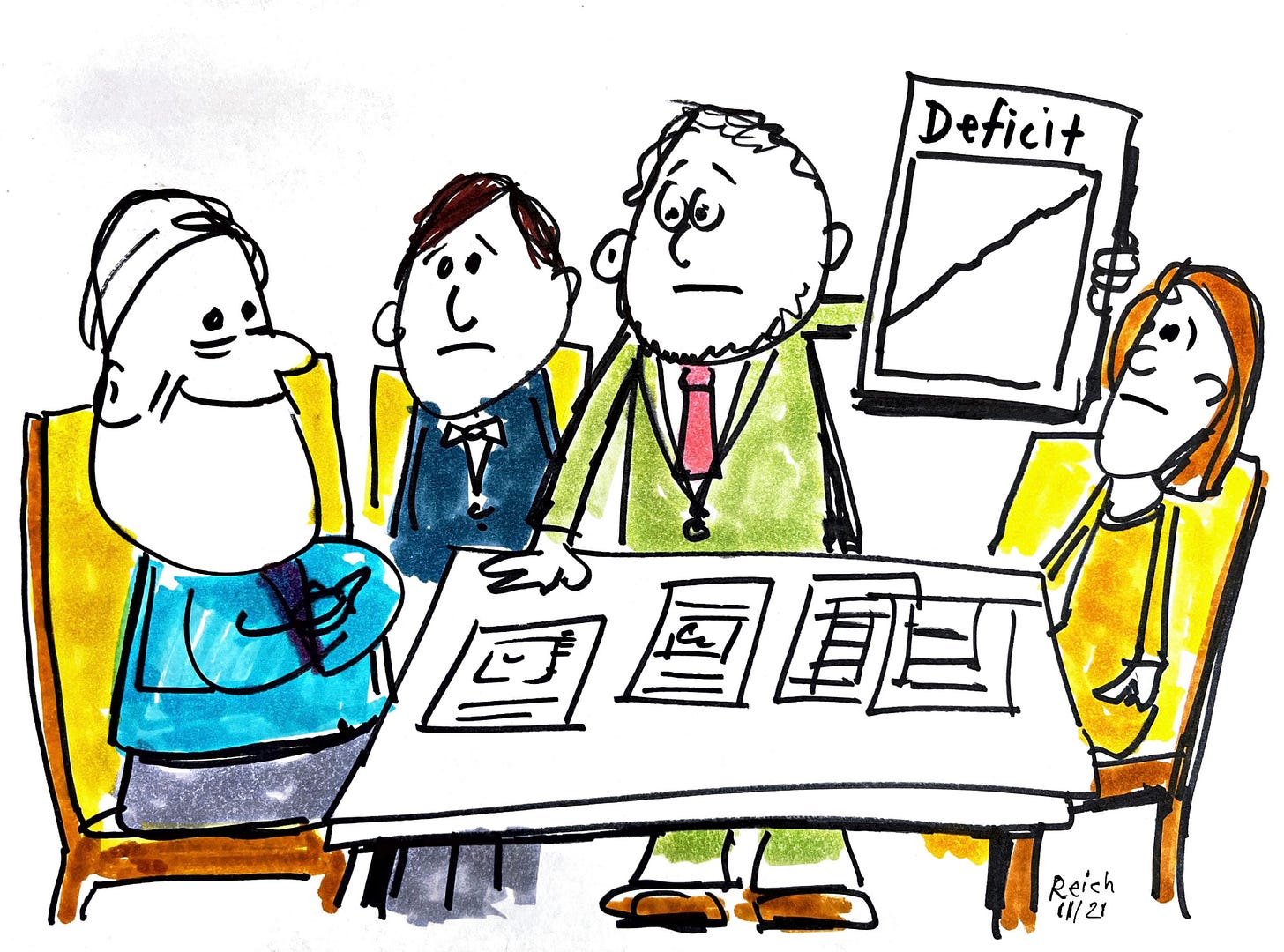
I’m glad he’s enthusiastic. What worries me is the deficit is already framing our discussions about what we want to accomplish. Getting it “under control” is becoming the most important measure of success, and we’re not even in office yet.
The deficit isn’t the core economic problem. The bigger problem is that the earnings of half of the American workforce have been stagnant or declining for years. This should have been what we focused on at today’s meeting. We should have discussed how to increase public investments in education, job-training, healthcare, and everything else that American workers need. And how to encourage corporations to share more of their profits with their workers.
I’m as guilty as anyone. More guilty. After all, I’m supposed to be in charge of this process. Instead, I succumbed to the deficit obsession.
Where is the obsession coming from? Since the election, the media has been hounding us about the deficit. Why are they so interested in the deficit now, when the topic was virtually ignored during the dozen years when Reagan and Bush caused it to balloon? Probably because we’re the first Democratic administration in a generation with a Democratic House and a Democratic Senate. Everyone expects Democrats to spendbecause for years Republicans have demagogued about “tax and spend liberals.”
Nobody paid attention to Reagan’s profligacy. He inherited a manageable debt ($914 billion) and a modest deficit ($59 billion in 1980). But by cutting taxes — mostly on the rich (he lowered the top rate from 70 percent to 28 percent) — and by cranking up defense spending, Reagan began running deficits of $200 billion a year “as far as the eyes can see,” in the words of his budget director, David Stockman. Now, twelve years later, the debt is more than $4 trillion and the yearly deficit more than $300 billion (and, as I pointed out to Bill, projected to be $350 billion by 1997), and Republicans and the media are demanding that the deficit be reduced. But because a large portion of the American workforce is earning less than it did before and can’t afford higher taxes, the only realistic option for reducing the deficit is to cut spending.
So now we have to clean up the mess Reagan and Bush left behind. As long as the economic goal is described as “getting the deficit under control,” our hands are tied. That was Reagan’s and Stockman’s plan all along — to “starve the beast,” in Stockman’s words, so the next Democratic administration couldn’t do much of anything.
Yet Americans are hurting. That’s the bitter irony. The deficit has become a symbol of a government that seems out of control at the very time when large numbers of people are feeling they have less and less control over their lives. The government’s failure to balance its checkbook seems particularly galling to an American public having trouble balancing its own family checkbook.
https://robertreich.substack.com/p/personal-history-the-origin-of-americas?fbclid=IwAR2Q6GramVr48gfYfAJbj7NPD_KiZ9K69FZ9SPtGhETe4wYYbQqVFrLBL4o





Geen opmerkingen:
Een reactie posten